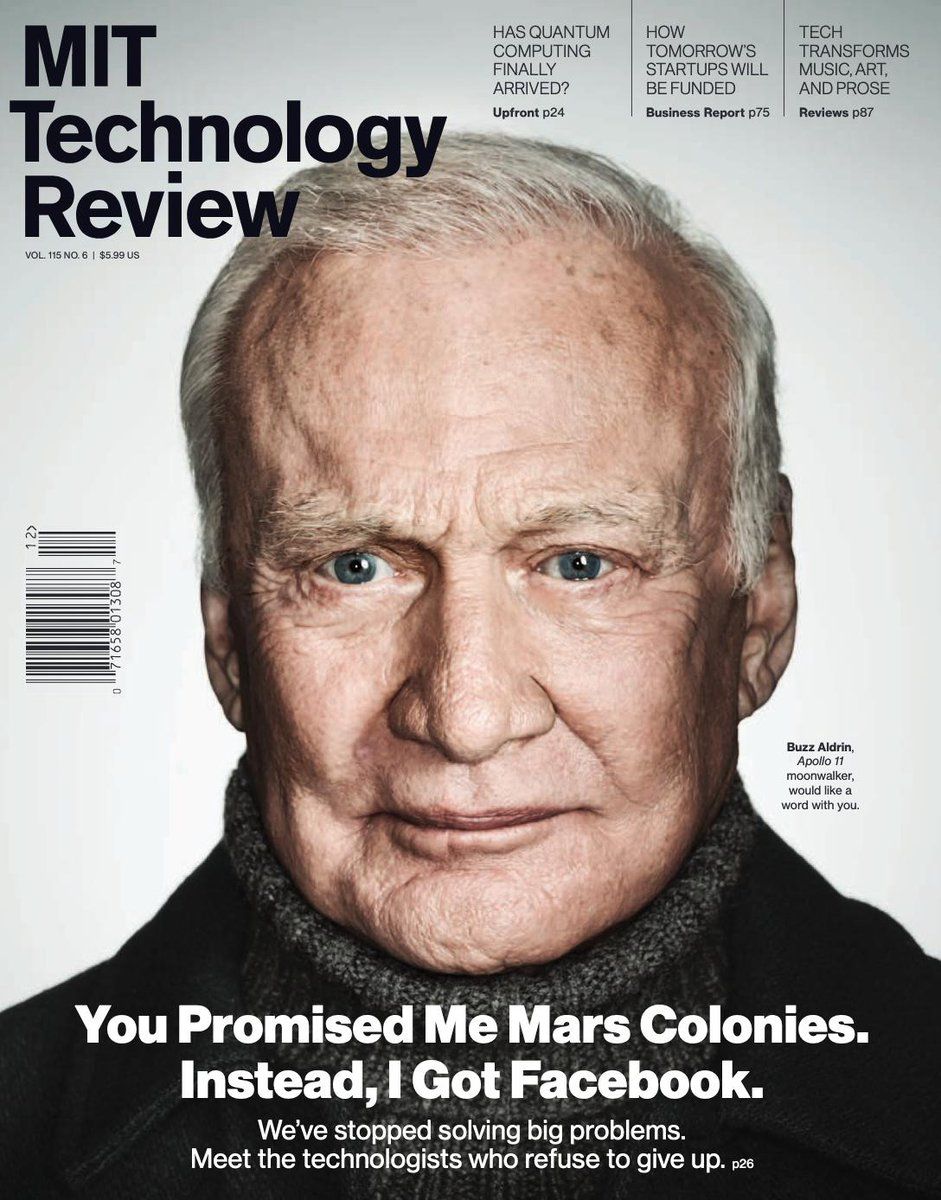-
As a kid, I was obsessed with the same stories of The Future™ that now drive a powerful nostalgia/longing for space colonization. @leashless @OmanReagan
-
These ideas of mid-century America in its atomic age—flying cars, nuclear fusion, designer babies, space colonization, cryogenic resurrection, mind uploads—were all about linear intensification of new forms of technology into superpowers.
-
They were lines of expansion of technologies that we hadn't yet imagined had intrinsic drawbacks. And they were about concentrating energy and effort in a single direction.
-
Later, our culture would learn that the automobile and suburbia had huge social and environmental costs; that centralizing energy production centralized risks and economic power;
-
that monocrop agriculture was nutritionally inferior, requires enormous energy inputs, and degrades the biosphere;
-
that space colonization and fusion power have tremendously steep learning curves, while our current planet has very solvable problems;
-
and that migration into the "purely mental" world online can provoke new forms of alienation and does not satisfy our hunger for embodiment.
-
In response, some people, still invested in the dreams that thrilled my childhood have treated our failure to live out Atomic Age Sci-Fi as some kind of colossal bummer. This confuses me.
-
There are absolutely amazing, challenging, rich adventures awaiting us here on Earth, if we bend our lines of future aspiration to circle the globe and embrace the breadth of humanity.
-
Just solving the problem of feeding a human population that will top out 9-12 billion people, under changing climactic conditions will be an enormously complicated undertaking.
-
There are challenges like allowing every existing linguistic community—many of which have been suppressed for decades or centuries—to pass on its heritage to its grandchildren.
-
There is the challenge of totally decarbonizing our economy within a single generation, while providing decentralized power to people who have never had electricity.
-
And of assisting the migration and stabilization wildlife to newly located climactic zones, protecting cities from wildfires, and rebuilding flooded metropolises.
-
And of re-wiring our cultural programming in ways that allow people of all genders, complexions, and capacities to flourish together.
-
If you wanted, you could invent technologically sophisticated vehicle, filled with brilliant and clever people, in love with cultures they are encountering for the first time, that helps solve these problems in every episode.
-
(And this is all without even considering the massive threats that undertaking these kinds of adventurous rethinking of our economy, society, and purpose could help us avert. There's a nightmare-ish threat waiting in every episode.)
-
But, do you literally need an Earth-bound Enterprise on a Planetary Trek to convince to love our planet, its people, and its phenomenal variety of life? If so, for Gaia's sake, film one.
-
But I just don't get the disappointment that comes from not colonizing the stars this century. Not with the adventure that awaits us.
-
People are literally giving their whole lives to make this planet liveable, and people think we're missing out on adventures on lifeless planets. (Was mid-century TV really THAT good?) globalwitness.org/pt/press-releases/deadliest-year-record-land-and-environmental-defenders-agribusiness-shown-be-industry-most-linked-killings/
-
P.S. @leashless, I think your ideas are fascinating. I just needed a jumping off point to articulate a concept I've been gestating for a long while now.
-
(this thread provoked by this… @CarwilBJ/1126293706217275392)

